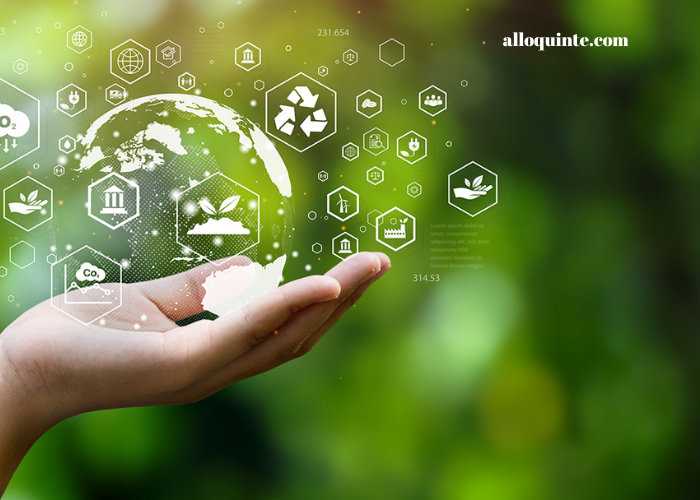In an era where environmental concerns are at the forefront of global discussions, the concept of eco-economics has emerged as a compelling and necessary framework for addressing the intertwined challenges of economic growth and environmental sustainability. Eco-economics, at its core, is about redefining the relationship between our economy and the environment. It offers a path forward that not only preserves our planet but also ensures long-term profitability and well-being for all. This article explores the key principles and practices of eco-economics and highlights the benefits it can bring to our world.
The Foundation of Eco-Economics
Eco-economics is grounded in the recognition that our traditional economic models have often neglected the finite nature of our planet’s resources and the ecological boundaries that must be respected for the well-being of current and future generations. Conventional economic thinking has often prioritized short-term gains and profit maximization, often at the expense of the environment. Eco-economics seeks to change this paradigm by integrating ecological principles into economic decision-making.
Valuing Natural Capital
At the heart of eco-economics lies the concept of natural capital, which encompasses the Earth’s resources and ecosystems that provide vital services to humanity. These services include clean air and water, fertile soil, biodiversity, and climate regulation. In traditional economic models, these services are often treated as externalities or overlooked entirely. In contrast, eco-economics places a high value on natural capital and recognizes its critical role in sustaining economic activities.
To implement this principle, eco-economists advocate for accounting systems that incorporate the value of natural capital into economic indicators like Gross Domestic Product (GDP). By assigning a tangible value to natural resources and ecosystem services, decision-makers can better appreciate the true cost of environmental degradation and make informed choices that prioritize long-term sustainability.
Circular Economy
Another key pillar of eco-economics is the promotion of a circular economy. In a linear economy, resources are extracted, used, and then discarded as waste. In contrast, a circular economy aims to minimize waste and keep resources in circulation for as long as possible. This is achieved through practices such as recycling, upcycling, and designing products for longevity and easy disassembly.
The circular economy not only reduces the strain on natural resources but also presents significant economic opportunities. It encourages innovation in product design and manufacturing processes, fosters local economies, and creates jobs in recycling and repair sectors. Moreover, it reduces the environmental impact of industries and minimizes the need for raw material extraction.
Resilience and Adaptability
Eco-economics acknowledges the dynamic nature of ecosystems and the need for economic systems to be adaptable and resilient in the face of environmental changes. Climate change, resource scarcity, and biodiversity loss are just a few of the challenges that our world faces. Building economic systems that can withstand these challenges is essential for long-term prosperity.
To achieve this, eco-economics promotes diversified economies that are not overly reliant on a single resource or industry. It also encourages the development of green technologies and industries that can thrive in a sustainable future. Resilient economic systems are better equipped to weather environmental shocks and provide stability and prosperity for communities.
The Benefits of Eco-Economics
The adoption of eco-economic principles and practices can yield a wide range of benefits for society, the economy, and the environment. Here are some of the key advantages:
Environmental Preservation
Perhaps the most obvious benefit of eco-economics is the preservation of our natural environment. By valuing natural capital and prioritizing sustainability, eco-economics helps to reduce pollution, protect biodiversity, and mitigate the impacts of climate change. This benefits not only the environment but also human health and well-being.
Economic Stability
Eco-economics promotes economic stability by reducing the vulnerability of economies to resource shocks and environmental disasters. Diversified and resilient economies are better equipped to withstand economic downturns and provide a safety net for communities during challenging times.
Innovation and Job Creation
The shift towards sustainability often spurs innovation and job creation. Green technologies, renewable energy, and circular economy practices create new business opportunities and employment prospects. This not only helps the economy but also fosters a culture of innovation and entrepreneurship.
Long-Term Profitability
Contrary to the misconception that sustainability is at odds with profitability, eco-economics demonstrates that long-term profitability is closely linked to sustainable practices. By reducing waste, conserving resources, and minimizing environmental risks, businesses can improve their bottom line while contributing to a more sustainable future.
Improved Quality of Life
A sustainable economy supports a higher quality of life for all. It ensures that communities have access to clean air and water, nutritious food, and a healthy environment. Additionally, it promotes social equity by considering the needs and well-being of marginalized populations.
Global Cooperation
Eco-economics also encourages international cooperation to address global environmental challenges. Recognizing that many environmental issues transcend national borders, eco-economists advocate for collaborative efforts to manage and protect shared resources, such as oceans and the atmosphere.
Case Studies in Eco-Economics
To illustrate the practical application of eco-economic principles, let’s delve into a few real-world case studies.
The Energy Transition in Germany
Germany, often hailed as a leader in renewable energy, provides an excellent example of eco-economic principles in action. The country’s “Energiewende” (energy transition) policy aims to shift away from fossil fuels and nuclear energy towards a sustainable energy system primarily based on wind and solar power.
This transition has not only reduced carbon emissions and improved air quality but has also created thousands of jobs in the renewable energy sector. Germany’s commitment to sustainability has also led to the development of innovative technologies and increased energy independence.
The Circular Economy in the Netherlands
The Netherlands has embraced the circular economy as a means to reduce waste and promote resource efficiency. One notable initiative is the “Plastic Pact” launched in 2019, which brings together businesses, government agencies, and NGOs to work towards a circular plastics economy.
Through this pact, stakeholders are committed to reducing single-use plastics, increasing recycling rates, and promoting sustainable product design. The circular economy approach in the Netherlands not only addresses environmental concerns but also creates opportunities for local businesses and reduces the environmental footprint of plastic production.
Costa Rica’s Biodiversity and Tourism
Costa Rica is renowned for its commitment to environmental conservation and sustainable tourism. The country has invested heavily in protecting its natural resources, including its lush rainforests and diverse wildlife.
This commitment has paid off economically, as Costa Rica has become a popular ecotourism destination. Revenue generated from sustainable tourism bolsters the economy while also providing a strong incentive for ongoing conservation efforts. By recognizing the economic value of its natural capital, Costa Rica has created a model for eco-tourism that benefits both the environment and the national economy.
Overcoming Challenges and Obstacles
While eco-economics offers a promising path towards a sustainable and profitable future, there are challenges and obstacles that must be addressed for widespread adoption. These challenges include:
Short-Term Thinking
One of the biggest hurdles to eco-economics is the prevalent short-term thinking in both business and politics. Many decision-makers prioritize immediate gains over long-term sustainability. Overcoming this obstacle requires a shift in mindset and the development of policies that incentivize sustainable practices.




